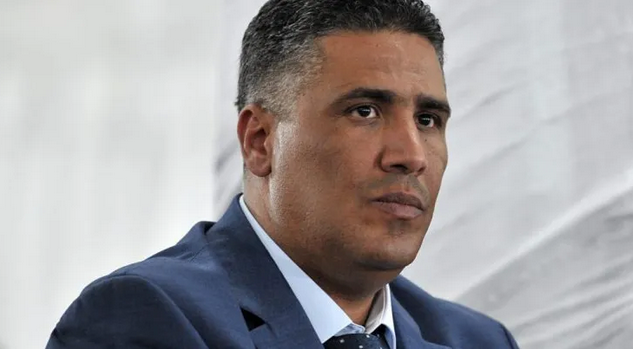President Tebboune’s proposed cabinet changes vetoed by the army
Published on 2022 May 31, Tuesday Back to articles
Proposed promotion of housing minister Mohamed Tarek Belaribi to premiership has been vetoed by the army
Our understanding is that Algeria’s President Abdelmajid Tebboune has spent several weeks working on a wholesale cabinet reshuffle which largely centred on the promotion of three political figures: Tarek Belaribi, Youcef Chorfa and Saïd Saayoud. These were the three key personalities around whom he wanted to build his new government.
Mohamed Tarek Belaribi, the current Minister of Housing, Urban Planning and the City, is one of Tebboune’s closest and most loyal collaborators. He is one of the most hard-working, dedicated and successful ministers: a genuine and rare ‘success story’ amongst the regime’s otherwise motley array of ministers. As the former director of the Agence nationale de l’amélioration et du développement du logement (AADL) between April 2015 until October 2017, he was well known to Tebboune who was then the Housing Minister. As AADL’s director, and then more recently as Housing Minister, Belaribi has proved his worth. The government media have, with justifiable reason, frequently singled him out as an example of the sort of minister that is needed for Tebboune’s ‘new Algeria.’
He had great confidence in Belaribi and, we understand, wanting to promote him to replace Prime Minister Aïmen Benabderrahmane. However, we understand that he ran into opposition from several senior advisors to the Presidency who objected to the 50 year old Belaribi’s young age, and his inexperience in managing many files beyond those of his own experience. Moreover, we understand that strong arguments were made that Belaribi should remain in his current post, because he was still in charge of many ongoing projects which needed to be completed to provide proof of Tebboune’s successful first presidential term.
Tebboune will no doubt resort to Belaribi to take charge of many other key projects between now and the 2024 presidential election. For now, however, senior advisors and probably the army see Belaribi as too great a ‘risk’ so his promotion has therefore been frozen.
The current Minister of Labour, Employment and Social Security, Youcef Chorfa, is also seen as one of Tebboune’s trusted men. He served as the wali of Blida in 2018-2020 and of Algiers from 2020 to 2021 and is considered to have extensive experience in the management of local authority affairs and matters relating to the Ministry of the Interior. Earlier in his career, he had directed several wilayas such as Laghouat, Batna and Annaba. Tebboune wants to appoint him as interior minister which is one of the most sensitive portfolios. Eventually he probably will be, but not this time around because, with the reshuffle now seemingly postponed indefinitely, Chorfa will have to wait for his promotion.
Tebboune’s choice of Saïd Saayoud was more problematic. According to our sources, he wanted Saayoud to replace Mohamed Tarek Belaribi as Minister of Housing, Urban Planning and the City, following the latter’s promotion to prime minister. He would have been a particularly bad choice to embody the face of Tebboune’s planed ‘renewal’ of government. Saayoud is the controversial and sulphurous wali of Oran who will inevitably be held responsible for the clumsy management of the preparations for this summer’s Mediterranean Games in Oran. He is also responsible for the scandal of the grotesque concrete sea wall that was built along Oran’s sea front to deter harragas — would be Algerian migrants — from illegally leaving the country.
The question now is: where does Tebboune go from here? It is possible that his plans have merely been frozen and perhaps postponed until after the Independence Day ceremonies and annual decisions of 5 July. On the other hand, it is clear that Tebboune is not his own man. He does not have the unfettered power and authority to appoint ministers despite having the constitutional right. He clearly has to account to a number of shadowy but powerful ‘presidential advisors’ — including many seemingly appointed by the army — as well as elements within the high command itself, which, like the rest of the regime, is riddled with uncertainly, clan rivalries and factional infighting.
As for Algeria’s political future, this latest debacle merely confirms what the Hirak, along with most other Algerians, have been saying since December 2019. Tebboune is answering to an army of questionable competence and largely commanded by corrupt geriatrics who are seemingly still wedded to the Kremlin.
This excerpt is taken from our Algeria Politics & Security weekly intelligence report. Click here to receive a free sample copy. Contact info@menas.co.uk for subscription details.


